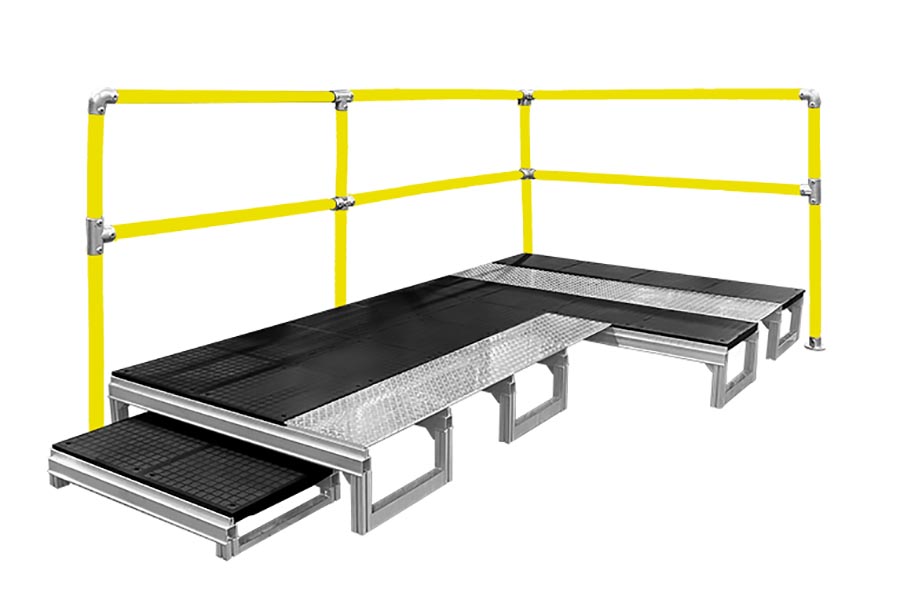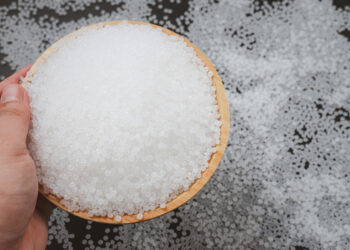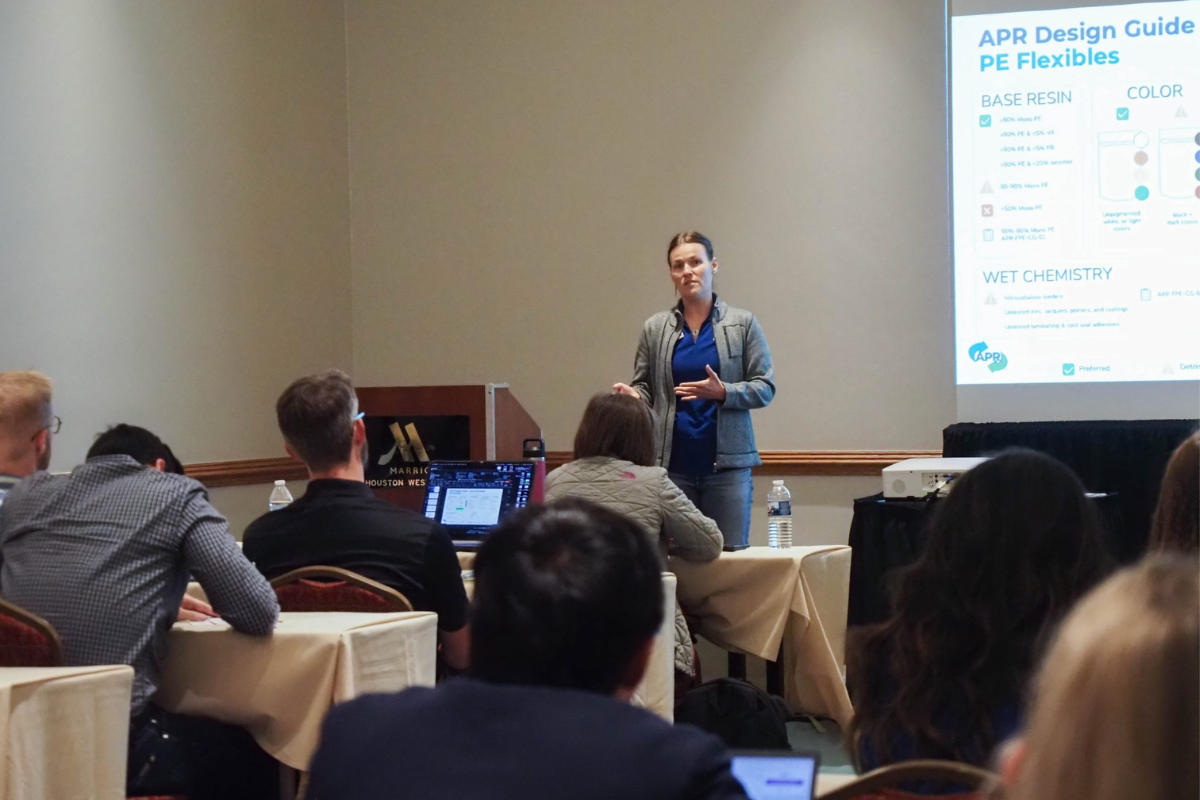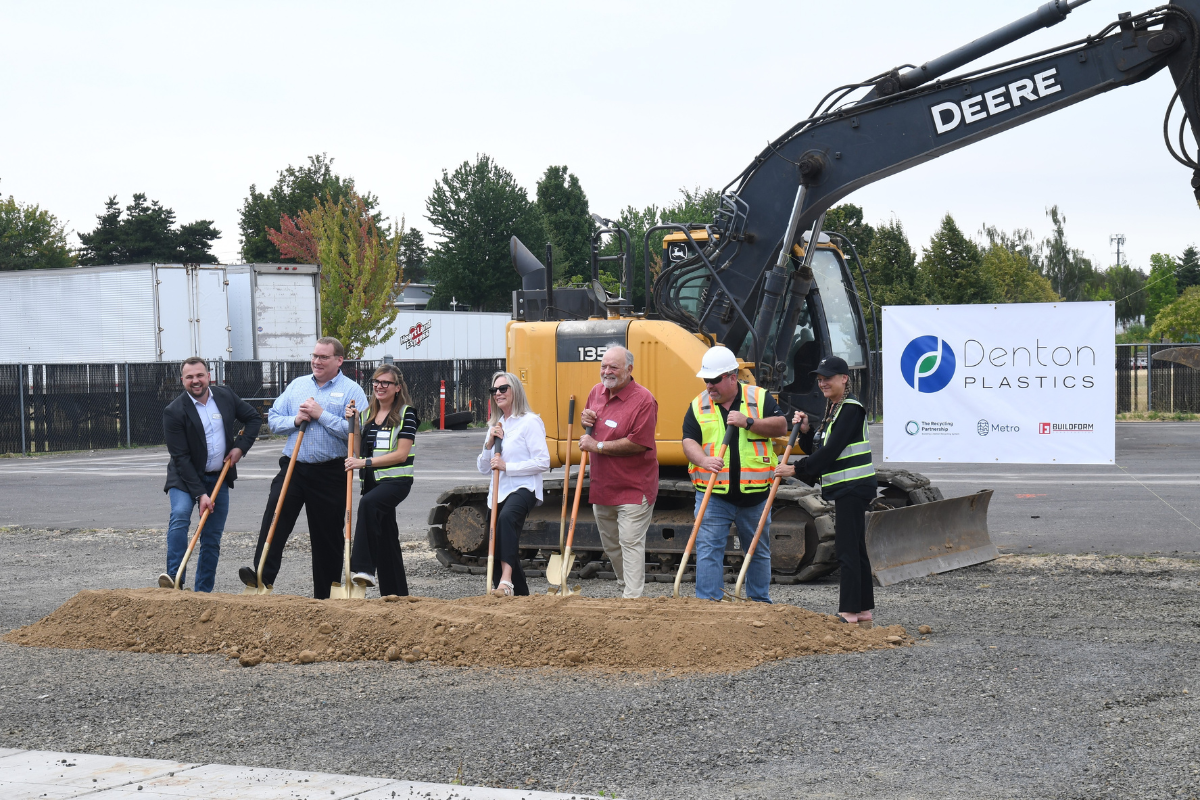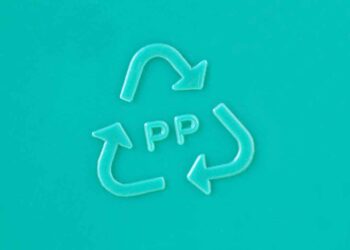Industrial products maker Wearwell has developed a foundation for its recycled PP usage – both figuratively and literally.
The Tennessee-based manufacturer of mats, pads and other products has created an industrial platform with 100% post-consumer PP tiles that workers walk and stand on. At the same time, the “Foundation” modular platform system is providing Wearwell with additional opportunities to mold parts from post-consumer resin (PCR), which it is currently buying from KW Plastics.
In an interview with Plastics Recycling Update, the lead product developer discussed how Wearwell overcame the challenges in using PCR and why the company is committed to using PCR, even if its price floats above virgin’s.
“There are times where we probably could have gone out there and gotten some virgin material for less than we were paying for the recycled, but that’s something that we have basically committed we’re going to do it this way, because it’s the right thing to do,” Phil Huss, Wearwell’s product and engineering manager, told Plastics Recycling Update. “Unless, heaven forbid, we literally can’t get the PCR that we need, we’re going to stick to it.”
Based in Smyrna, which is just outside of Nashville, Wearwell is a manufacturer of anti-fatigue mats and pads used in a variety of industrial and commercial settings. From the company’s beginning, it used recycled tires to produce rubber mats, so using recycled materials is embedded in the company’s history, Huss noted. Wearwell’s website notes that over two dozen of its products have some level of recycled content.
But when it comes to injection molding, before the Foundation, the company’s experience was limited to flexible PVC parts, Huss said.
Overcoming molding challenges
When it began looking to develop the Foundation – work that began in earnest in 2018 – the company initially explored recycled HDPE but found that the polymer didn’t have the impact resistance needed for the tiles, Huss said. Wearwell reached out to different vendors and landed on KW, which supplies black 100% PCR PP pellets that have the impact resistance and strength needed for the application, he said.
Located in Troy, Ala., over 300 miles from Smyrna, KW is the world’s largest reclaimer of PP. The company recently installed another washline, this one dedicated to PP, that will boost KW’s recycling capacity by 100 million pounds per year.
The main hurdle Wearwell experienced in using the PP was in the molding process, Huss explained. Wearwell conducted trials using the PP in the company’s existing molds for flexible PVC products but found that changes were needed to ensure the part ejected. When the PP cools in the mold, it shrinks and hugs the mold, so Wearwell had to add hydraulic cylinders and additional ejector pins to push the part out, he said. It only took a couple of weeks to solve the issue.
Additionally, Wearwell found it needed to use an additive to help the plastic flow better so that the polymer fully fills out the mold, he said.
Overall, the experience using PCR has been good, he said.
“We haven’t had a whole lot of issues with variability with the material that we get from KW. It’s very consistent,” he said. “And it makes good parts once we added that additive to help it process and fill out the part a little bit better.”
Wearwell first brought the Foundation to market in early 2021. Over the past year, the company has purchased at least 100,000 pounds of the recycled PP from KW, he said.
The supply availability has also been consistent, he said, although early in the pandemic the lead times for the recycled PP jumped from a typical three weeks to eight weeks. Since then, the lead times have settled out.
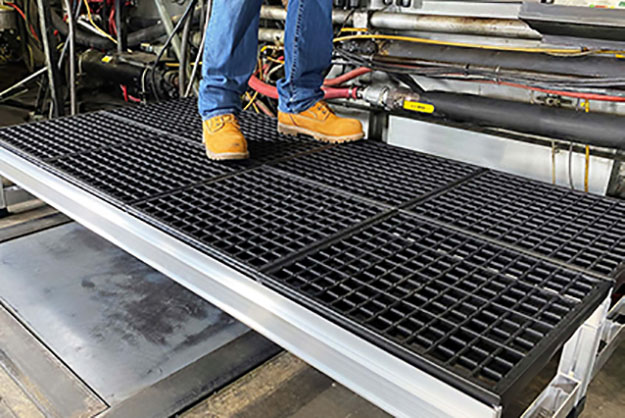
A chance to educate customers
Since rolling out the Foundation, the company has found at least one other opportunity to use the PCR. Huss said Wearwell is replacing an aluminum cross-brace, which holds the platform legs vertical, with an injection-molded PP one. The move allowed the company to react to rising aluminum prices during the pandemic, and the use of PP has allowed some parts on the cross-brace to be eliminated.
Wearwell is also adding accessories to the Foundation, including handrails, skirts and toe-plates. But because those are purchased from outside suppliers, Wearwell won’t have direct control over the recycled content, he said.
Huss noted that using post-consumer plastic was important to both the company and to him, personally. He emphasized how it’s crucial to create end-market demand to support upstream recycling processes, a point also spelled out on the company’s website.
Taunya Swandal, marketing director at Wearwell, said the roll-out of the product has also given Wearwell a chance to educate customers on different types of recycled content.
“From a marketing side, we’re continually promoting that product,” she said, “and one part of the campaign is telling the green story and kind of laying out the differences in what … post-consumer versus post-industrial really means.”






